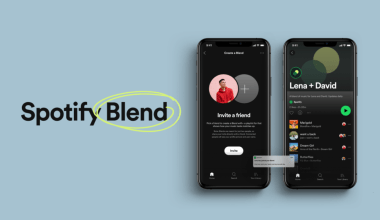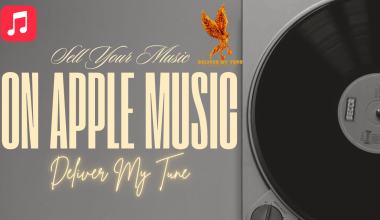Music is universal. It connects people, transcends cultures, and speaks to emotions like no other art form. But understanding music on a deeper level requires more than just listening. It demands music knowledge.
Music knowledge isn’t just for musicians or producers. It’s for anyone who loves music and wants to appreciate it fully. Whether you’re an aspiring artist, a producer creating extended play albums, or planning to sell your music on platforms like Beatport, a strong foundation in music knowledge can elevate your skills and creativity.
This blog dives deep into the world of music knowledge. From theory and history to modern techniques and tools, you’ll learn how to harness the power of music.
What is Music Knowledge?
Music knowledge refers to understanding the elements, structure, and history of music. It includes knowing:
- Music theory, like scales, chords, and rhythm.
- Genres and their unique characteristics.
- How to play instruments or use music software.
For example, when you hear a complex beat in an electronic track, your music knowledge helps you identify its layers and appreciate its construction.
The Building Blocks of Music Knowledge
1. Music Theory
Music theory is the foundation of music knowledge. It explains how notes, rhythms, and harmonies work together.
- Scales and Keys: These form the basis of melodies.
- Chords and Harmony: Combine notes to create emotion.
- Rhythm and Tempo: Dictate the flow and energy of a song.
Learning theory helps you understand why some songs feel uplifting while others evoke sadness.
2. Music History
Understanding the evolution of music deepens your appreciation. From classical compositions to modern electronic beats, every genre has its story.
- Classical Music: The roots of Western music theory.
- Jazz and Blues: Influenced modern pop and rock.
- Electronic Music: Revolutionized music production.
Exploring these eras adds context to your music knowledge.
Why Music Knowledge is Essential for Musicians
Musicians need more than talent—they need knowledge. Understanding music theory, genres, and techniques makes creating and performing music easier and more impactful.
1. For Songwriters
Music knowledge helps you craft memorable melodies and lyrics. Knowing how chords interact allows you to create emotional depth in your songs.
2. For Producers
Producers rely on music knowledge to mix and master tracks. Whether you’re working on an extended play or creating beats to sell on Beatport, understanding sound design and arrangement is crucial.
3. For Performers
Performers use music knowledge to interpret pieces authentically. Whether you’re singing or playing an instrument, knowing the context of a piece enhances your delivery.
Music Knowledge and Genres
Every genre has its unique characteristics. Developing music knowledge helps you understand and create within specific styles.
1. Classical Music
Classical music emphasizes structure and complexity. It teaches you discipline and deepens your understanding of harmony.
2. Pop Music
Pop music relies on catchy hooks and melodies. Knowledge of current trends and production techniques is vital.
3. Jazz and Blues
These genres emphasize improvisation and emotional expression. They’re great for learning about scales and rhythm.
4. Electronic Music
Electronic music is about innovation. Understanding software and sound design is key to mastering this genre.
Expanding Music Knowledge Through Practice
1. Play an Instrument
Learning an instrument is one of the best ways to deepen your music knowledge. It helps you understand how theory applies in practice.
- Start with basics like piano or guitar.
- Explore more complex instruments as you progress.
2. Use Music Software
Digital Audio Workstations (DAWs) like Ableton and FL Studio are essential for modern music production. Learn to create, mix, and master tracks.
3. Study Famous Tracks
Break down songs you admire. Analyze their structure, melody, and rhythm to understand what makes them great.
Music Knowledge for Aspiring Artists
If you’re an aspiring artist, building music knowledge is crucial. It helps you:
- Write better songs.
- Understand how to collaborate with producers and engineers.
- Navigate the music industry.
For example, if you plan to sell your music on Beatport, knowing how to produce high-quality tracks and market them effectively is essential.
Advanced Music Knowledge for Professionals
For seasoned musicians and producers, music knowledge goes beyond basics. Advanced techniques like sound design, orchestration, and audio engineering come into play.
1. Sound Design
Create unique sounds by manipulating waveforms and effects. This skill is especially valuable in electronic and experimental music.
2. Orchestration
For composers, understanding how to arrange music for different instruments is vital. It brings depth and texture to your work.
3. Mixing and Mastering
These are essential for polishing tracks. Knowing how to balance frequencies and dynamics ensures your music sounds professional.
How to Gain Music Knowledge
1. Take Online Courses
Platforms like Coursera, Udemy, and Skillshare offer courses on music theory, production, and performance.
2. Read Books on Music
Books like The Musician’s Guide to Theory and Analysis provide in-depth insights.
3. Learn from Other Musicians
Collaborating with others exposes you to new styles and techniques.
4. Experiment
Don’t be afraid to try new ideas. Experimentation often leads to innovation.
The Role of Music Knowledge in the Industry
Music knowledge isn’t just about creativity—it’s about professionalism. It helps you navigate contracts, royalties, and platforms like Beatport. If you want to sell music or collaborate with top artists, understanding the business side is as important as the creative side.
Conclusion:
Music knowledge is a lifelong journey. Whether you’re a beginner learning scales or a professional mastering sound design, there’s always more to discover.
By deepening your music knowledge, you not only improve your skills but also enrich your relationship with music. So, pick up an instrument, study a new genre, or experiment with software today. Every step brings you closer to mastering the art and science of music.
Related Articles:
For further reading, explore these related articles:
- Apple Artist: Build Your Music Career on Apple Music
- Discover Free Music Online: The Best Platforms & Tips
- Music Bio: Write the Perfect Bio to Promote Your Music
For additional resources on music marketing and distribution, visit Deliver My Tune.






